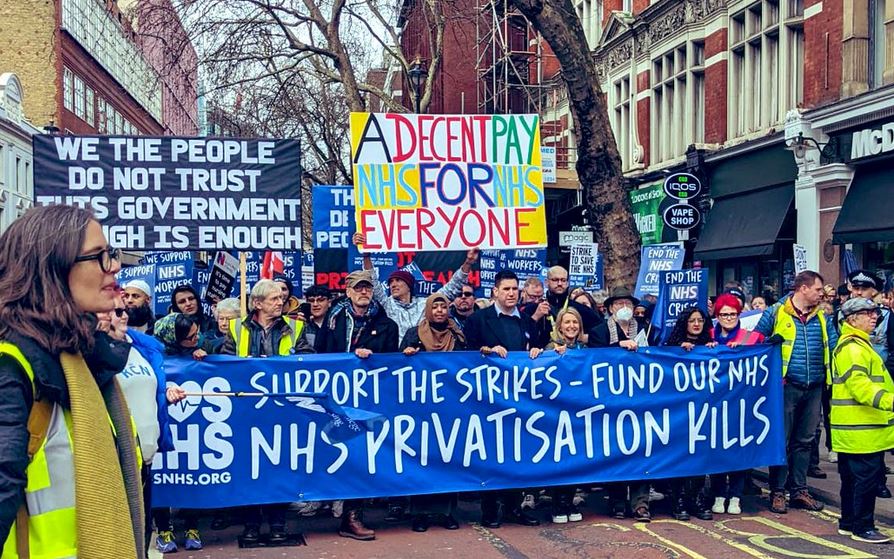Unions representing nurses, ambulance staff and other NHS workers have reached a pay deal with the government that could see the end of their industrial action.
After months of strikes and weeks of negotiations, the three biggest unions – Royal College of Nursing (RCN), GMB and Unison – are recommending their members accept the deal agreed between the government and the NHS Staff Council. The Unite union said they cannot recommend its members accept the government’s pay offer.
Nurses, paramedics and other staff are being offered a 5.2% rise from next month and two bonuses for this year alone. The bonuses amount to a one-off 2% payment for all staff for 2022-23 and a “Covid recovery bonus” worth between 1.5% and 6.2%.
The offer is far less than the above inflation deal that unions were calling for. NursingNotes website states the amount offered “in real-terms equates to yet another pay cut for NHS workers.”
They report the 5% deal will leave most nurses “around £4,400 worse off in real terms than in 2008.”
Nurses United called the deal “terrible” with Anthony Johnson, the grassroots campaign group’s lead organiser explaining: “After 12 years of patients struggling to get treatment because of a lack of staff and 12 years of nurses skipping meals and crying at work, we’re being offered another terrible deal which cuts NHS pay in real terms.”
Johnson said it will do nothing to halt the staff exodus that has seen thousands of workers leave the NHS, and added: “This does nothing to reward staff for the work they put in day after day to keep things afloat.
“We need to restore our pay back to the real terms levels it was in 2010. That’s the only thing that will improve staffing levels which is so necessary to bring our NHS back to safety.”
Nurses United are urging their colleagues to “reject this pay cut”.
However, the GMB, Unison and RCN unions are recommending their members accept the deal and are claiming victory in securing the 5.2% rise (plus bonuses) which is 1.7% more than the government’s original 3.5% offer. Ministers have been adamant that was the maximum pay rise the government could afford.
As such, questions are already being asked as to how the improved deal will be funded. Chancellor Jeremy Hunt failed to pledge any new money for the NHS in yesterday’s (March 15) budget leading to fears the pay rises will mean cuts in other parts of the NHS.
Sky News’ political editor Beth Rigby reports the government says the money will come “from efficiency savings” and that frontline NHS services are being protected.
Steve Barclay, the secretary of state for health and social care said he was “very pleased” the offer would be put to union members.
Today’s pay deal does not cover GPs, consultants, dentists and senior managers who are on different contracts to other NHS workers. Junior doctors held three days of strikes this week, forcing the cancellation of thousands of operations and appointments as consultants covered for their colleagues.
Teachers have also been continuing their industrial action with strikes closing schools on Wednesday and Thursday this week.




